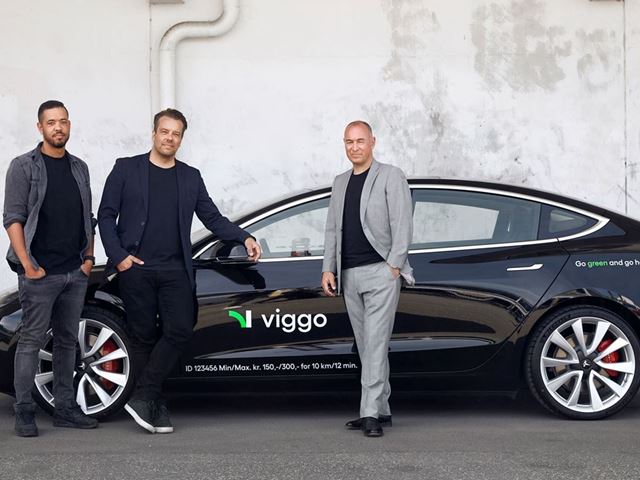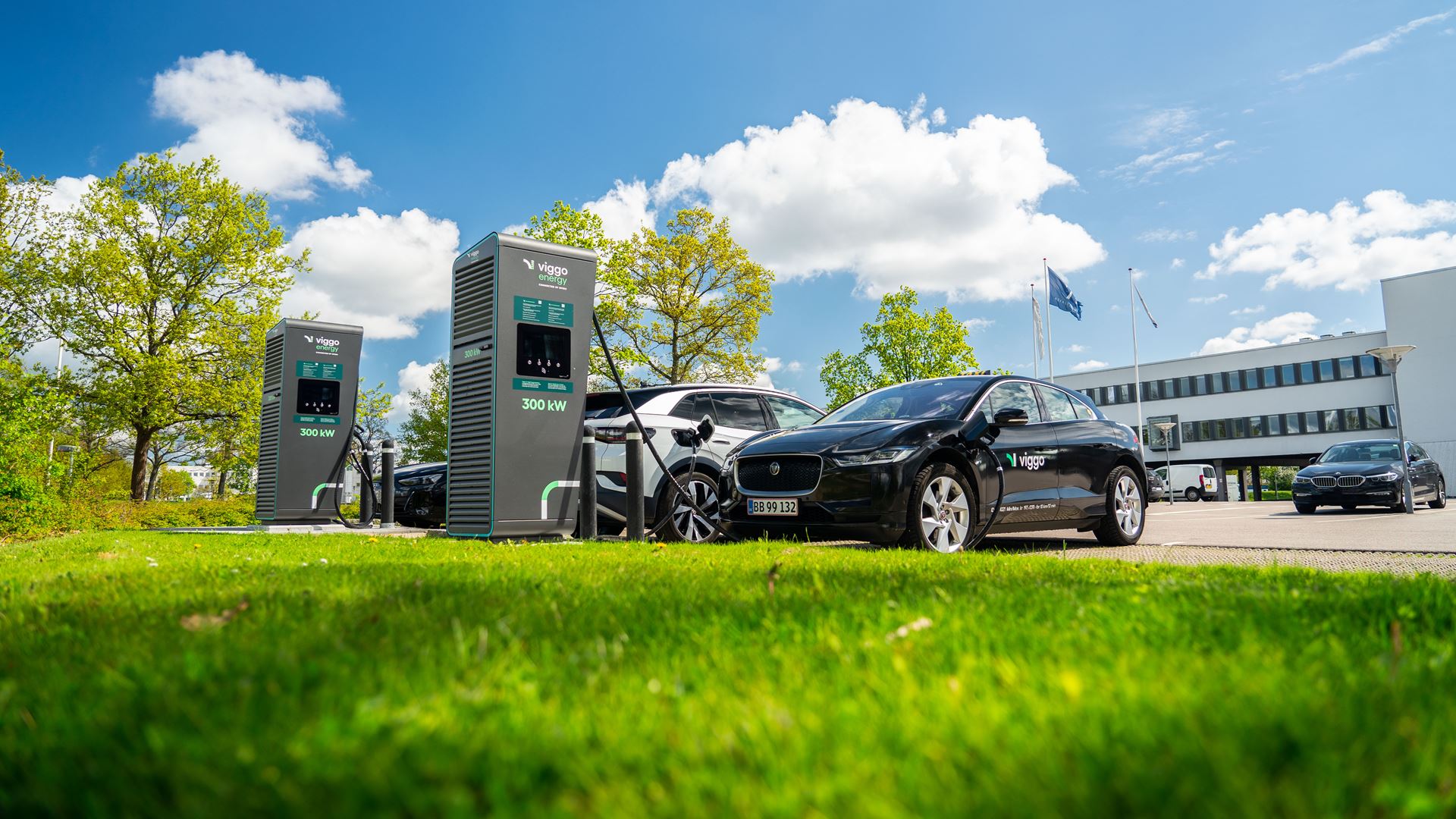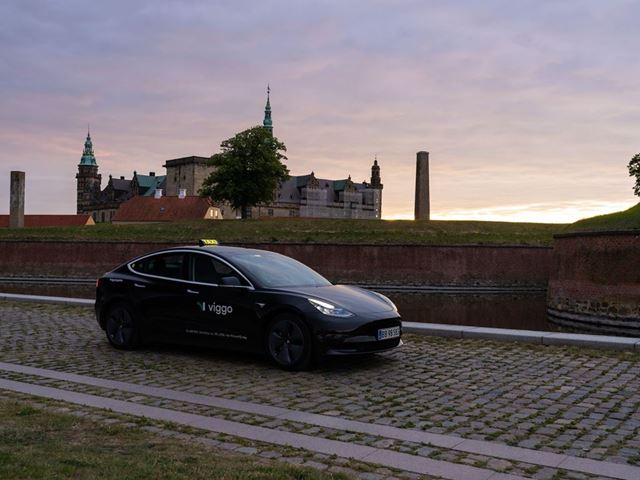
- Latest: Welcome to Auto Futures - Mobility News, Features, Exclusives and More...
- Latest: Subaru Europe Unveils the Brand's First All-Electric Compact SUV
- Latest: Lucid, Nuro & Uber Partner on Next-Generation Autonomous Robotaxi Service
- Latest: GM & Redwood Materials to Repurpose EV Batteries for Energy Storage
- Latest: Stellantis Discontinues Hydrogen Fuel Cell Technology Development Program
- Latest: Paving the way for an Electrified Future - L-Charge CEO
At the Forefront of the "Next Phase in Ride-Hailing" - Viggo CEO, Kenneth Herschel
Adrian Smith
- May 03 2023

Viggo is a Danish scale-up that's going places. It recently announced €3.27 million in funding to expand its business, which includes an electric ride-hailing service, as well as a fast-charging network for private and business electric vehicle (EV) drivers.
"We launched Viggo as a green ride-hailing service that caters to business users and with a strong focus on sustainability, unparalleled service and a fair treatment of the drivers," Kenneth Herschel, Viggo's CEO, tells Auto Futures. "We founded Viggo because we believed that the next phase in ride-hailing needed to happen."
He adds: "Companies like Uber and Lyft revolutionized the way we hail and book rides and interact with the driver, but in 2019 the ambitions of going green with zero emission vehicles were not ambitious enough to secure the CO2 targets set in many countries. We also felt that the corporate segment would either need to use taxis and a more expensive limo offering to get a corporate type of service."
Shortly after launching, Herschel, Viggo co-founder Patrick Pereria and CFO Mads Vieth, realised that the company needed secure fast charging options for its drivers as there wasn’t enough infrastructure available to support its fleet. It now runs 20 ultra-fast charge points in Greater Copenhagen.
"There are strong synergies between the two business units. First of all, it is very important for our drivers to have access to urban fast charging without having to wait for an available plug. And, by securing the base revenue from our own fleet, we are able to grow the number of charging stations faster which benefits all EV users and of course our own fleet. All of our charging stations are open to anyone."
Back in April 2020, Viggo launched a CO₂ counter in its cars. This allows users to keep track of their personal CO₂ savings during their trip.
"Traditionally, when you get into a taxi you see the taximeter and we found that the taximeter actually creates stress for both the passenger and the driver as the price increases. As all of our rides are offered at a fixed price in our app we thought it could be a fun way to turn the taximeter into something positive," explains Herschel.
"On the more serious side it gives the ability to show our riders that they are actually making a difference when choosing an electric vehicle over a regular diesel car and we believe that it helps our users to generally think more about the sustainability choices we all take during the day," he adds.

Viggo's Expansion Plans
Currently Viggo has a network of around 200 EVs in Copenhagen and Aarhus. It has signed an agreement with Fisker Inc, for 300 Fisker Ocean all-electric luxury SUVs. Henrik Fisker, chairman and CEO of Fisker, was born and raised in Denmark.
"It is Henrik Fisker’s vision to create the most sustainable car in the world and that goes hand in hand with our values. The Fisker Ocean is at the same time a premium vehicle that fits perfectly for transporting passengers. It also looks really good - who doesn’t want to arrive in style?" says Herschel.
The company's growth plans are supported by investment from Norwegian climate-focused venture capital fund Link Capital, and a group of private Canadian investors.
"The new funding will be used to strengthen our home market Denmark and will pave the way for international expansion with the EV charging as the main driver."
"We are still in the process of finalizing our expansion plans, but more Scandinavian countries and Central Europe are on our radar," he says.
The adoption of EVs is speeding up in the EU, particularly in Scandinavian countries. However, Herschel believes that the roll-out of infrastructure is lagging behind the growth in demand for greener mobility.
"Many governments have incentives in place ranging from subsidizing part of the vehicle price to free parking in cities, which is great. Norway went all-in years ago and they are now the leading EV nation in the whole world, so it works. The main blocker however is infrastructure. If the infrastructure is not in place then most people will not choose an EV. And many infrastructure companies won't roll-out too soon if there is no demand i.e. no EVs," Herschel explains.
"So we see a 'chicken and the egg' type of situation and governments and municipalities should increase their focus on supporting the implementation of infrastructure through grants and making more land available in both urban locations and along the highways," he adds.

Making Trips More Sustainable
Finally, we asked Herschel what urban mobility look like by the end of the decade.
"It's gonna be all about ditching cars and finding more sustainable ways to get around. Cities like Copenhagen and Amsterdam are leading the way with a mix of transport options that make it way less attractive to own a car. Think metros, affordable ride-hailing, on-demand car sharing, and good old-fashioned bicycles," he predicts.
"Bikes are the most sustainable way to travel and they're getting even better with super-bike paths popping up in busy cities. But it's not just about getting from A to B. Smart technologies are gonna be a big part of the mix, making traffic flow smoother and helping us get where we're going faster."
"And let's not forget the environment and climate challenges. Electric and hybrid vehicles will be more common, along with greener infrastructure like bike lanes and pedestrianized areas. We're all in this together, and by 2030 we should have a transport system that makes the majority of all trips way more sustainable," concludes Herschel.
Popular Categories
